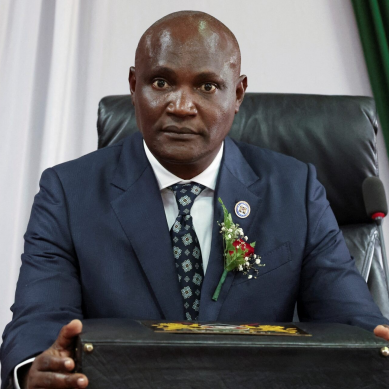VP Kamala Harris is sure to win Democratic ticket, but her mother’s native India is cautious about her prospects
When Kamala Harris was sworn in as vice president in the US, residents in her maternal family’s ancestral village in southern India watched in real time, setting off fireworks, holding up portraits of her and wishing her a long life. But, four years later, as she works to become the...
Biden’s legacy: ‘History will treat Biden kinder than voters had…he defeated a president who placed himself above our democracy’
Joe Biden never figured out how to inspire the world’s most powerful country to believe in itself, let alone in him. He lost the confidence of supporters in the 90-minute debate with Trump, even if pride initially prompted him to override the fears of lawmakers, party elders and donors who were nudging him to drop out. Then Trump survived an assassination attempt in Pennsylvania, and, as if on cue, pumped his fist in strength. Biden, while campaigning in Las Vegas, tested positive for the coronavirus on Wednesday and retreated to his Delaware beach house to recover.
With military as Rwanda’s main exportable ‘goods’, world looks increasingly weary of Mr 99 Per Cent, Kagame
Indeed, many foreign powers still appreciate Kagame’s ability to transform post-genocide Rwanda into what he and some of them like to characterise as the ‘Singapore of Africa’ – an effective state worth sacrificing some democracy and liberty for. Kagame has taken full advantage of such international approval, making himself a reliable partner of the global, particularly Western, community. He has achieved this largely by deploying his comparatively efficient army.
Beware of introvert in your neighbourhood: Trump gunman Thomas Crooks lived like a harmless, innocent and top grade student
Thomas Crooks, an introverted 20-year-old computer whiz who had just earned a spot at a college engineering programme, turned back to his target about 400 feet away. He squeezed off several shots at Trump, clipping the former president’s ear, killing an audience member and wounding two others before Secret Service snipers on a nearby building killed him with counterfire.
Republicans and Democrats bat conspiracies on Trump assassination attempt as FBI investigate motive
In conspiracy channels online, many Trump supporters pointed to an interview with a witness who saw the gunman climbing onto the roof with a rifle and told police about it minutes before the shooting. Law enforcement’s failure to act, posters claimed, is a sign that the apparent assassination attempt was coordinated by the “deep state.”
How Kenyan MPs’ lavish lifestyle set off a revolution by ‘social media tribe’ that consumed parliament, forced president to fire cabinet
In April and May during the build-up to the protests, ruling party MP Zaheer Jhanda posted videos of himself on TikTok admiring his gleaming Range Rover, a Mercedes G Wagon and a Lexus, triggering angry online commentary.
Protesters have since tried to storm his home, southwest of the capital Nairobi, in Kisii town. Jhanda did not respond to requests for comment.
‘You ain’t seen nothin’ yet, revolutionary Gen-Z are ready to storm State House and uproot Kenya’s corrupt president’
The opposition, meanwhile, has been surprised by its newfound irrelevance. Like the 19th century French politician Alexandre Ledru-Rollin, who during the French revolution is said to have declared, “There go the people. I must follow them, for I am their leader”, opposition leaders are belatedly rushing to hitch their wagon to the movement. How far their light has dimmed is illustrated by contrasting today’s movement with their attempt last year to capitalise on popular discontent over tax hikes, which failed to generate much lasting political pressure.
Republicans unleash flurry of videos to sway voter opinion on Biden’s mental capacity to be US president
A growing body of misleading online videos isn’t helping President Joe Biden and Democratic Party campaign. In one clip, Biden stands very still during a Juneteenth musical performance at the White House, leading to talk he had “frozen.” But Philonise Floyd, George Floyd’s brother, was standing next to the president...
Why Democrats are worried about Biden’s often sharp and focused but at times confused and forgetful mind
Biden’s occasional struggles with focus may not be unusual for someone his age. But at 81 years old and seeking another four years in the White House, the moments when he’s off his game have taken on a fresh resonance following his disastrous debate performance against Republican Donald Trump. The president appeared pale, gave nonsensical answers, stared blankly and lost his train of thought.















